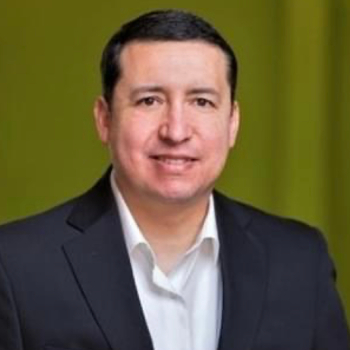Group Travel: How to Handle Conflicts and Challenges

So, your travel partners are at odds? Picture this: your group is standing on a beautiful, sun-drenched street in a new city. The day is full of promise, but you’ve hit the classic travel roadblock—the great “where do we eat for lunch?” debate. Half the group is craving a quick, casual bite, while the other half has their heart set on a leisurely sit-down meal. Suddenly, a simple decision feels complicated, and the cheerful vacation vibe begins to wane. It’s a small moment, but it’s one that every group traveler knows well.
Even on the most idyllic trips with our favorite people, moments of friction are not just possible; they are practically inevitable. The combination of decision fatigue, hunger, physical exhaustion, and the simple reality of different human beings having different needs can create the perfect conditions for disagreements. Conflicts and challenges are inevitable when traveling in a group, but how they are handled can make all the difference between a minor bump in the road and a major vacation-derailing event.
The goal isn’t to create a conflict-free trip—that’s an impossible standard. Instead, the goal is to build a toolkit of strategies and a mindset of grace that allows your group to navigate these challenges constructively. When handled well, overcoming a small disagreement can actually bring a group closer, reinforcing your ability to work as a team. This guide will provide you with a practical framework for preventing, managing, and resolving conflicts, ensuring your group adventure remains harmonious and joyful.

The Peace Treaty: Establishing Ground Rules Before You Go
The most effective way to handle conflicts is to prevent them from happening in the first place. By having open conversations and setting clear expectations before you even leave home, you create a shared framework for how your group will operate. This proactive approach minimizes misunderstandings and gives you a clear process to fall back on when disagreements do arise.
One effective approach to conflict resolution is to establish ground rules and expectations before the trip. Think of this as creating a lighthearted "group constitution." This can include guidelines for behavior, decision-making processes, and how to handle disagreements. For example, how will you make group decisions? A simple majority vote works for some things, but you might also implement a "decider of the day" system, where a different person gets the final say on a specific choice each day. Agree on fundamentals like punctuality—what does "on time" mean to your group? Explicitly state that taking solo downtime is not only okay but encouraged. This prevents anyone from feeling guilty for needing to recharge.
Having a clear framework in place can help prevent misunderstandings and provide a basis for resolving conflicts. It's also helpful to designate a neutral mediator or group leader who can facilitate discussions and help find mutually agreeable solutions. This person isn’t a boss; they are the designated listener. Their role is to ensure that during a disagreement, everyone’s voice is heard and to gently guide the conversation toward a compromise. Having this role defined in advance removes the awkwardness of someone having to step up in a tense moment.
In the Moment: Your Toolkit for On-the-Road Disagreements
No matter how well you prepare, challenges will arise. When they do, having a few simple, effective tools can help you resolve them quickly and respectfully, keeping small issues from escalating. Open and respectful communication is key to resolving conflicts and maintaining group harmony.
The first and most important rule is to address conflicts promptly. Don’t let them fester. A minor annoyance about someone being consistently late can grow into a major resentment if it isn’t addressed. Encourage group members to express their concerns and opinions in a constructive manner, and actively listen to understand their perspectives. The most effective way to do this is by using "I" statements, which express your feelings without placing blame. Instead of saying, "You're rushing us through this museum," which can feel like an attack, try, "I feel a bit rushed, and I'd love to spend a little more time here."
Let’s imagine a scenario. It's a beautiful Thursday morning in Plymouth, Massachusetts. Half your group is excited to spend the entire day immersed in the history of the Plimoth Patuxet Museums, while the other half is feeling a bit tired and would prefer a relaxed morning browsing the shops downtown followed by a long lunch on the waterfront. You can feel the tension building. The group’s designated mediator can step in and facilitate. They would first actively listen to both sides, confirming their understanding: "So, one group is feeling energetic and wants a deep historical dive, and the other is looking for a more relaxed pace today." By validating both perspectives, they diffuse the tension. The solution is a classic compromise: the group splits up. The museum-goers head out, and the downtown explorers agree to meet them at a specific restaurant at a set time for a late lunch together. The conflict is resolved because the communication was collaborative, not confrontational.
Remember the HALT principle: never try to resolve a conflict when someone is Hungry, Angry, Lonely, or Tired. These physical and emotional states make constructive conversation nearly impossible. If tensions are high, the first step should be to address the immediate need—grab a snack, take a 20-minute break, or agree to discuss the issue after a good night's sleep.
The Harmonious Mindset: Cultivating Flexibility and Grace
Beyond specific tactics and rules, the most powerful tool for handling challenges is the collective mindset of the group. Cultivating an atmosphere of flexibility, appreciation, and shared purpose creates a deep well of goodwill that can absorb the inevitable bumps in the road.
Flexibility and compromise are essential when dealing with conflicts and challenges. Rigidity is the enemy of group travel. Flights get delayed, the weather turns, and attractions close unexpectedly. The ability to pivot as a group and find joy in the alternative is a superpower. Recognize that not everyone will get their way all the time, and be willing to make adjustments to accommodate different preferences and needs. Before you dig your heels in on a small issue, ask yourself: "On a scale of 1 to 10, how much does this really matter to me?" Often, the simple act of letting go for the sake of a friend’s happiness is the most rewarding choice.
Finding common ground and focusing on the shared goals of the trip can help keep the group united. When a disagreement arises, take a moment to zoom out. Remember why you are all there together—to explore, to connect, to laugh, and to build memories. This shared purpose is always bigger than any minor logistical conflict.

Finally, make appreciation the currency of your group. Celebrating successes and expressing appreciation for each other's contributions can also foster a positive and supportive atmosphere. Thank the person who navigated you through the city. Compliment the friend who discovered an amazing hidden gem. A simple "I'm so glad we're doing this together" can go a long way. This consistent positive reinforcement builds emotional resilience in the group, making it far easier to approach the challenging moments with patience and grace.
Ultimately, challenges on the road are not a sign of failure. They are a sign that you are on a real adventure with real people. By facing them together with the right tools and a supportive mindset, you won't just save your vacation—you'll deepen your relationships and return home with a stronger bond than ever before.
About the Writer: Tom Mendez, the passionate travel curator behind Mendez & Associates Travel LLC (The Bespoked Traveler), believes that travel should be nothing short of extraordinary. With a knack for travel insights and a deep understanding of what makes a journey truly special, he'll craft personalized itineraries that turn travel dreams into unforgettable realities. Ready to transform your travel aspirations into your next great adventure? Book a complimentary consultation with Tom today via this booking page and let the journey begin.


